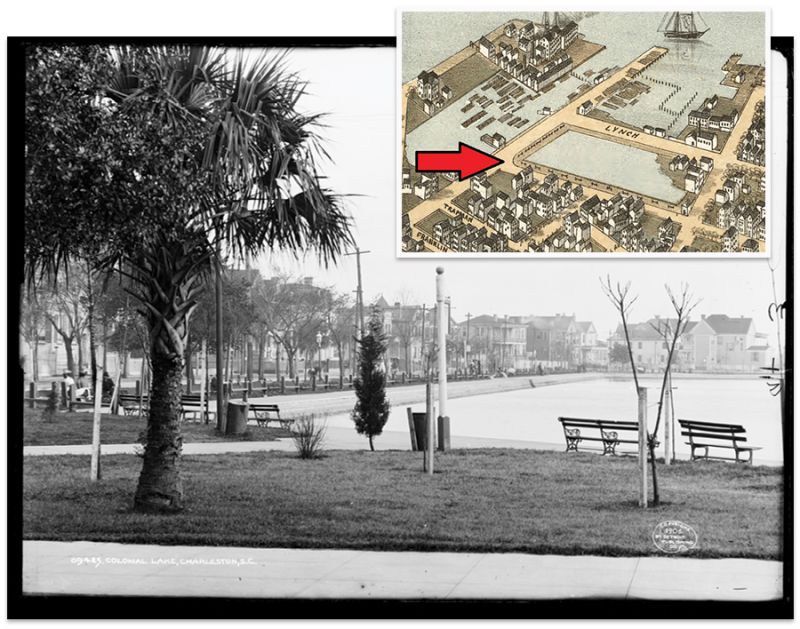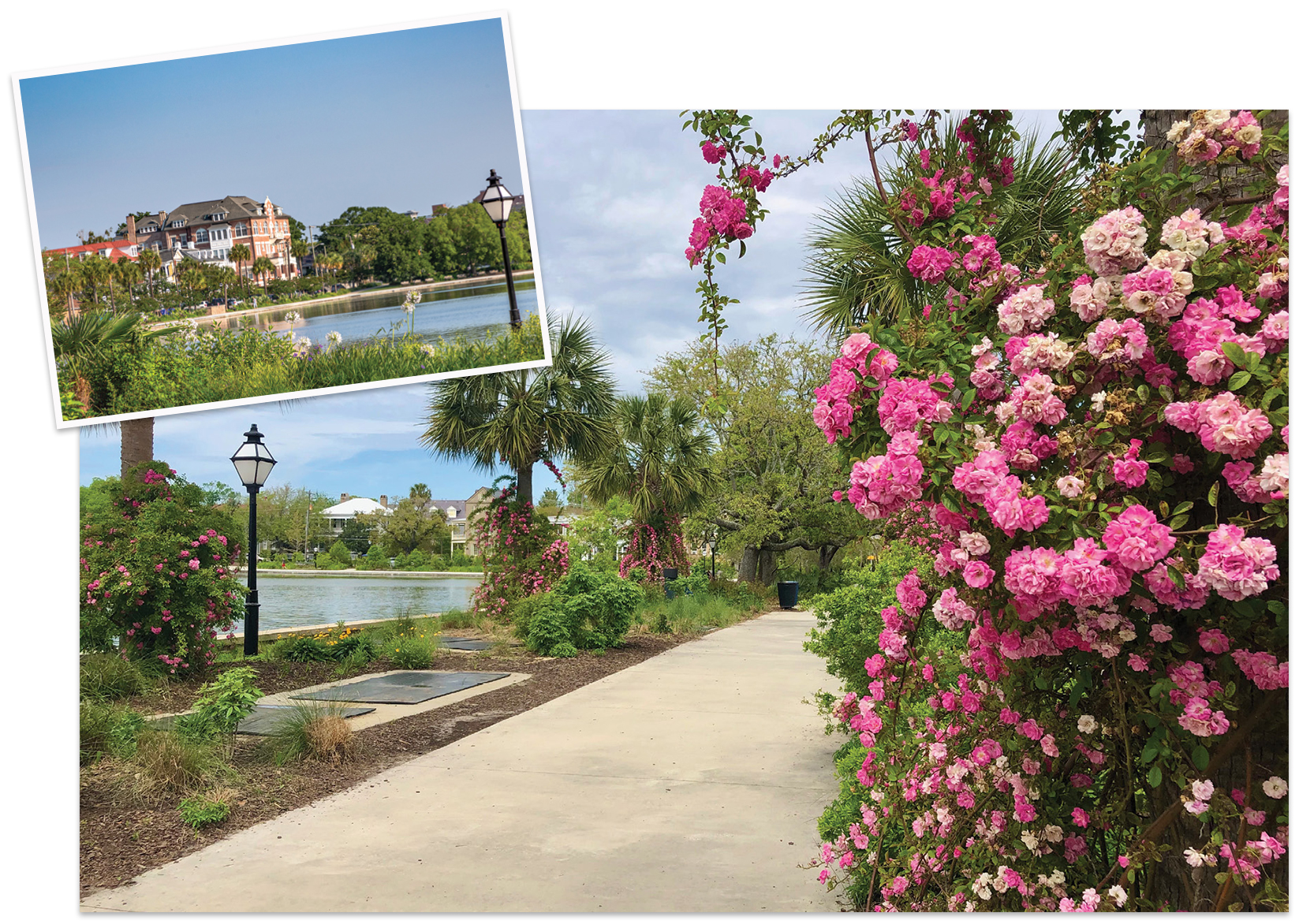Colonial Lake has been designated for public use and recreation since the British ruled Charleston

(Top) An 1872 map of Charleston shows Ashley Avenue, then Lynch Street, forming the western edge of Colonial Lake. (Above) The redesigned Colonial Lake with concrete shores, circa 1900
Ever wondered how Colonial Lake got its name? Found on the western side of the pennisula, the pond dates all the way back to April 12, 1768. That’s when the local government, still part of the British Empire, granted this part of town in perpetuity for the common use of its citizens.
As the city grew westward, much of the land and marshes were slowly developed; the city sold off some parcels and leased others to businesses such as lumber mills, which floated wood down from forests upriver. (The nearby Horse Lot Park is where the dray horses for Anderson’s Lumber Mill were kept.)

Today, volunteers of the Charleston Parks Conservancy maintain the roses and other plants surrounding Colonial Lake.
By the 1870s, the northern extension of Ashley Avenue, then Lynch Street, had cut off part of the mill pond from the river, and in 1881 the city set up the Commissioners of Colonial Common and the Ashley River Embankment to improve these “pleasure grounds.” What informally had been called “Rutledge Street Pond” was redesigned with concrete shores (the father of DuBose Heyward, author of Porgy, was one of the men who worked on the project). The commissioners also hired a park attendant, from whom families and young courting couples often rented boats. Moultrie Playground, honoring Revolutionary War hero William Moultrie, was laid out on the part of the common land.
In 2016, the Charleston Parks Conservancy undertook a multimillion-dollar renovation, repairing the lake’s wall and adding more than 20,000 plants. Today, volunteers work ceaselessly to help maintain a centuries-old promise: to keep Colonial Lake a treasure for us all.